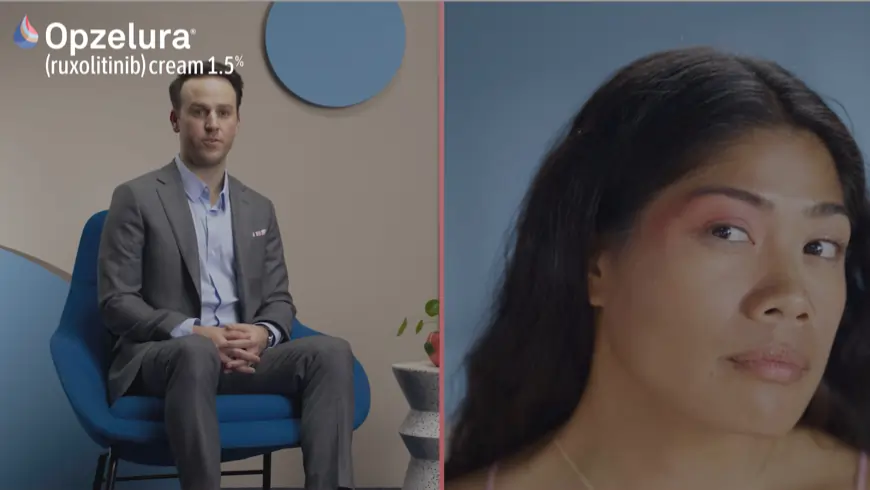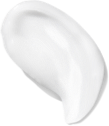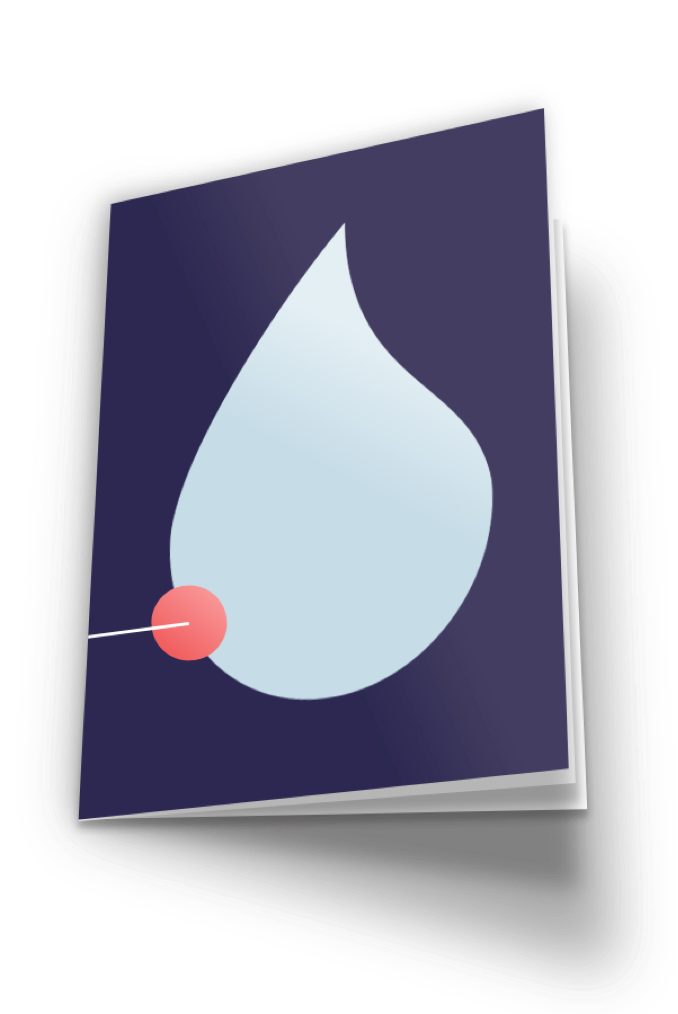Important Safety Information
OPZELURA is for use on the skin only. Do not use OPZELURA in your eyes, mouth, or vagina.
OPZELURA may cause serious side effects, including:
Serious Infections: OPZELURA contains ruxolitinib. Ruxolitinib belongs to a class of medicines called Janus kinase (JAK) inhibitors. JAK inhibitors are medicines that affect your immune system. JAK inhibitors can lower the ability of your immune system to fight infections. Some people have had serious infections while taking JAK inhibitors by mouth, including tuberculosis (TB), and infections caused by bacteria, fungi, or viruses that can spread throughout the body. Some people have been hospitalized or died from these infections. Some people have had serious infections of their lungs while taking OPZELURA. Your healthcare provider should watch you closely for signs and symptoms of TB during treatment with OPZELURA.
OPZELURA should not be used in people with an active, serious infection, including localized infections. You should not start using OPZELURA if you have any kind of infection unless your healthcare provider tells you it is okay. You may be at a higher risk of developing shingles (herpes zoster) while using OPZELURA.
Increased risk of death due to any reason (all causes): Increased risk of death has happened in people 50 years of age and older who have at least 1 heart disease (cardiovascular) risk factor and are taking a medicine in the class of medicines called JAK inhibitors by mouth.
Cancer and immune system problems: OPZELURA may increase your risk of certain cancers by changing the way your immune system works. Lymphoma and other cancers have happened in people taking a medicine in the class of medicines called JAK inhibitors by mouth. People taking JAK inhibitors by mouth have a higher risk of certain cancers including lymphoma and lung cancer, especially if they are a current or past smoker. Some people have had skin cancers while using OPZELURA. Your healthcare provider will regularly check your skin during your treatment with OPZELURA. Limit the amount of time you spend in the sunlight. Wear protective clothing when you are in the sun and use a broad-spectrum sunscreen.
Increased risk of major cardiovascular events: Increased risk of major cardiovascular events such as heart attack, stroke, or death have happened in people 50 years of age and older who have at least 1 heart disease (cardiovascular) risk factor and taking a medicine in the class of medicines called JAK inhibitors by mouth, especially in current or past smokers.
Blood clots: Blood clots in the veins of your legs (deep vein thrombosis, DVT) or lungs (pulmonary embolism, PE) can happen in some people taking OPZELURA. This may be life-threatening. Blood clots in the vein of the legs (deep vein thrombosis, DVT) and lungs (pulmonary embolism, PE) have happened more often in people who are 50 years of age and older and with at least 1 heart disease (cardiovascular) risk factor taking a medicine in the class of medicines called JAK inhibitors by mouth.
Low blood cell counts: OPZELURA may cause low platelet counts (thrombocytopenia), low red blood cell counts (anemia), and low white blood cell counts (neutropenia, lymphopenia, leukopenia). Your healthcare provider may do a blood test to check your blood cell counts during your treatment with OPZELURA and may stop your treatment if signs or symptoms of low blood cell counts happen.
Cholesterol increases: Cholesterol increase has happened in people when ruxolitinib is taken by mouth. Tell your healthcare provider if you have high cholesterol or triglycerides.
Before starting OPZELURA, tell your healthcare provider if you:
- have an infection, are being treated for one, or have had an infection that does not go away or keeps coming back
- have diabetes, chronic lung disease, HIV, or a weak immune system
- have TB or have been in close contact with someone with TB
- have had shingles (herpes zoster)
- have or have had hepatitis B or C
- live, have lived in, or have traveled to certain parts of the country (such as the Ohio and Mississippi River valleys and the Southwest) where there is an increased chance for getting certain kinds of fungal infections. These infections may happen or become more severe if you use OPZELURA. Ask your healthcare provider if you do not know if you have lived in an area where these infections are common.
- think you have an infection or have symptoms of an infection such as: fever, sweating, or chills, muscle aches, cough or shortness of breath, blood in your phlegm, weight loss, warm, red, or painful skin or sores on your body, diarrhea or stomach pain, burning when you urinate or urinating more often than usual, feeling very tired.
- have ever had any type of cancer, or are a current or past smoker
- have had a heart attack, other heart problems, or a stroke
- have had blood clots in the veins of your legs or lungs in the past
- have or have had low white or red blood cell counts
- are pregnant or plan to become pregnant. It is not known if OPZELURA will harm your unborn baby. There is a pregnancy exposure registry for individuals who use OPZELURA during pregnancy. The purpose of this registry is to collect information about the health of you and your baby. If you become exposed to OPZELURA during pregnancy, you and your healthcare provider should report exposure to Incyte Corporation at 1-855-463-3463 or www.opzelura.pregnancy.incyte.com.
- are breastfeeding or plan to breastfeed. It is not known if OPZELURA passes into your breast milk. Do not breastfeed during treatment with OPZELURA and for about 4 weeks after the last dose.
After starting OPZELURA:
- Call your healthcare provider right away if you have any symptoms of an infection. OPZELURA can make you more likely to get infections or make worse any infections that you have.
- Get emergency help right away if you have any symptoms of a heart attack, blood clot, or stroke while using OPZELURA, including:
- discomfort in the center of your chest that lasts for more than a few minutes, or that goes away and comes back
- severe tightness, pain, pressure, or heaviness in your chest, throat, neck, or jaw
- pain or discomfort in your arms, back, neck, jaw, or stomach
- shortness of breath with or without chest discomfort
- breaking out in a cold sweat
- nausea or vomiting
- feeling lightheaded
- weakness in one part or on one side of your body
- slurred speech
- swelling, pain, or tenderness in one or both legs
- Tell your healthcare provider right away if you develop or have worsening of any symptoms of low blood cell counts, such as: unusual bleeding, bruising, tiredness, shortness of breath, or fever.
Tell your healthcare provider about all the medicines you take, including prescription and over-the-counter medicines, vitamins, and herbal supplements.
The most common side effects of OPZELURA in people treated for atopic dermatitis include: common cold (nasopharyngitis), diarrhea, bronchitis, ear infection, increase in a type of white blood cell (eosinophil) count or decrease in a type of white blood cell (neutropenia) count, hives, inflamed hair pores (folliculitis), swelling of the tonsils (tonsillitis), and runny nose (rhinorrhea), upper respiratory tract infection, COVID-19, fever, and pain, irritation, discomfort, or itching at the application site.
These are not all of the possible side effects of OPZELURA. Call your doctor for medical advice about side effects. You may report side effects to FDA at 1-800-FDA-1088. You may also report side effects to Incyte Corporation at 1-855-463-3463.
Please see the Full Prescribing Information, including Boxed Warning, and Medication Guide for OPZELURA.











